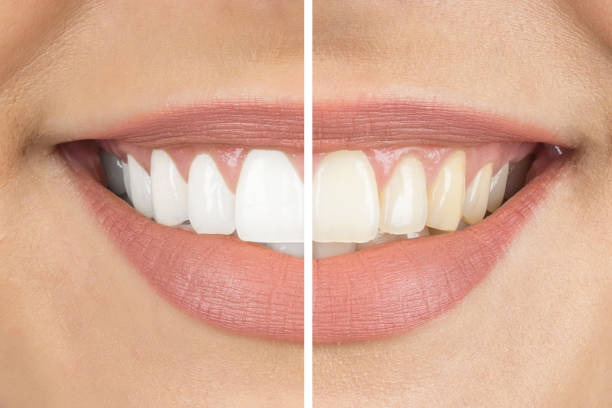Teeth whitening treatments brighten your smile and help boost your confidence in social and professional settings. The foods and drinks you consume greatly impact how well whitening treatments work and last over time. Some items, like coffee and red wine, can stain your teeth and reduce whitening effects quickly. Other foods help keep your teeth white, strong, and protected from future discoloration.
Watching your diet closely can improve and extend the results of teeth whitening treatments. Choosing enamel-friendly foods protects your teeth and keeps your smile looking bright and healthy. Eating crunchy fruits and vegetables naturally cleans teeth and prevents stains from building up. Combining whitening treatments with healthy eating habits helps maintain a radiant, long-lasting smile.
Foods That Stain Teeth Quickly
Certain foods and drinks cause stains because of their colors and acids. Avoid these foods, especially after whitening, to protect your smile.
- Coffee and tea contain tannins that stick to your teeth.
- Red wine has deep pigments and acids that discolor teeth fast.
- Berries like blueberries and blackberries have strong colors that cling to teeth.
- Tomato sauces, soups, and ketchup have acids and pigments that stain teeth.
- Sodas and sports drinks have dyes and acids that wear down enamel.
- Soy sauce and balsamic vinegar can also darken teeth with regular use.
Foods That Help Keep Teeth White
Some foods help remove stains and keep enamel healthy.
- Crunchy fruits and vegetables like apples, carrots, and celery work like natural toothbrushes. They scrub away food particles and surface stains as you chew.
- Dairy products such as cheese, milk, and yogurt provide calcium and phosphorus. These minerals make enamel stronger and help stop stains.
- Strawberries contain malic acid, a natural whitener that brightens teeth.
- Drinking water rinses away residue and keeps your mouth clean.
- Herbal teas without caffeine stain less than black or green teas.
Timing and Habits That Protect Your Whitening
When and how you consume staining foods affects your teeth whitening results, so be mindful of your habits. Using a straw when drinking coffee or tea helps keep liquids away from your teeth, reducing stains. Rinsing your mouth with water after eating or drinking washes away pigments before they stick to your enamel. Avoid acidic or pigmented foods for 48 hours after whitening treatments because your teeth are sensitive and porous.
Start Your Teeth Whitening Journey Today
Maintaining good oral hygiene helps keep your smile bright and healthy. Brush your teeth twice daily using whitening or fluoride toothpaste to help remove surface stains and strengthen enamel. Don’t forget to floss every day to eliminate plaque buildup between teeth where brushes can’t reach. Rinse with an antibacterial mouthwash to reduce bacteria and keep your breath fresh throughout the day.
Avoid tobacco products, as smoking and chewing can cause stubborn, heavy stains that dull your smile. When drinking coffee or soda, use a straw to minimize direct contact with your enamel and protect your teeth from discoloration. Teeth whitening results will naturally fade over time, so regular touch-ups are key to maintaining a radiant look. By adopting these healthy habits and visiting your dentist regularly for cleanings, you can enjoy a long-lasting smile.
- Zirconia Cap Price: Estimated Cost & Its Long-Term Benefits
- FREHF – The Revolutionary Future Of Human-Centered Technology!
- Adsy.Pw/Hb3 – Boost Your SEO And Drive More Traffic!
- Fitness Based Vacations By Timeshealthmage.com!
- TimesHealthMag Tips For Improving Sleep Quality – Expert Advice For Better Rest!


Leave a Reply